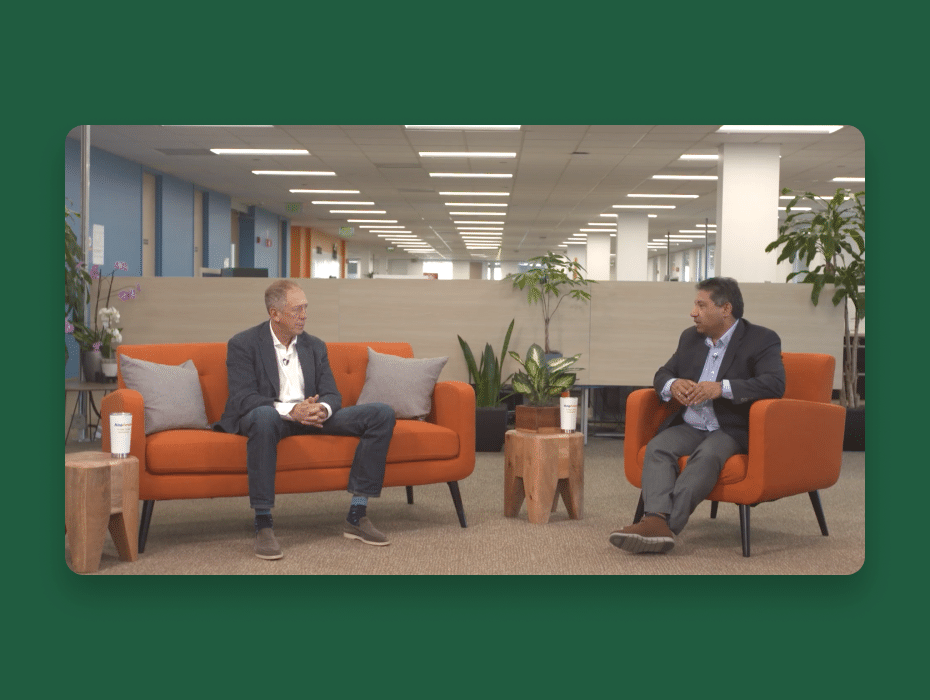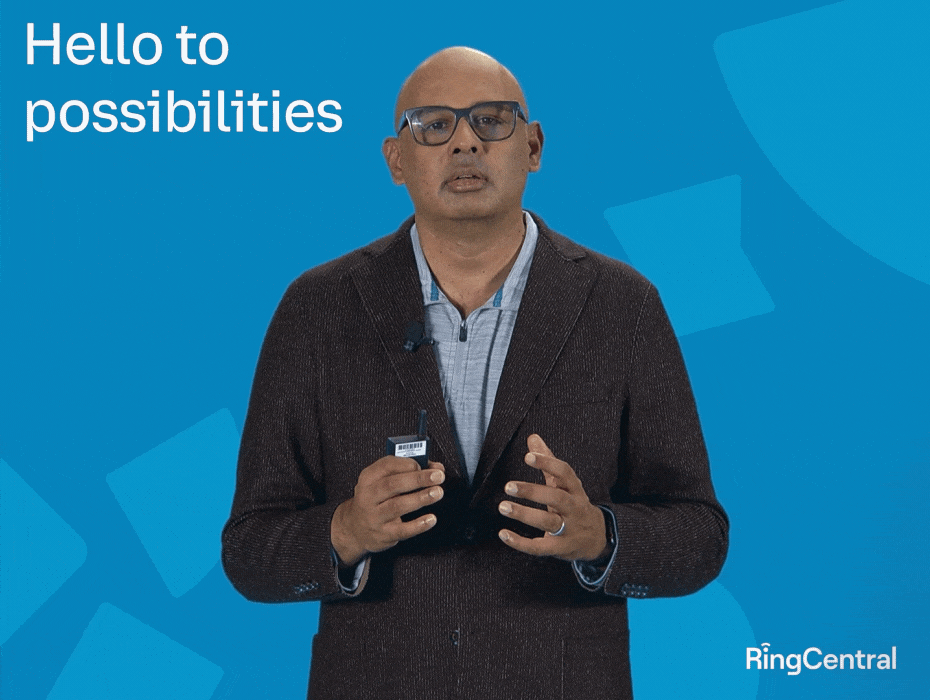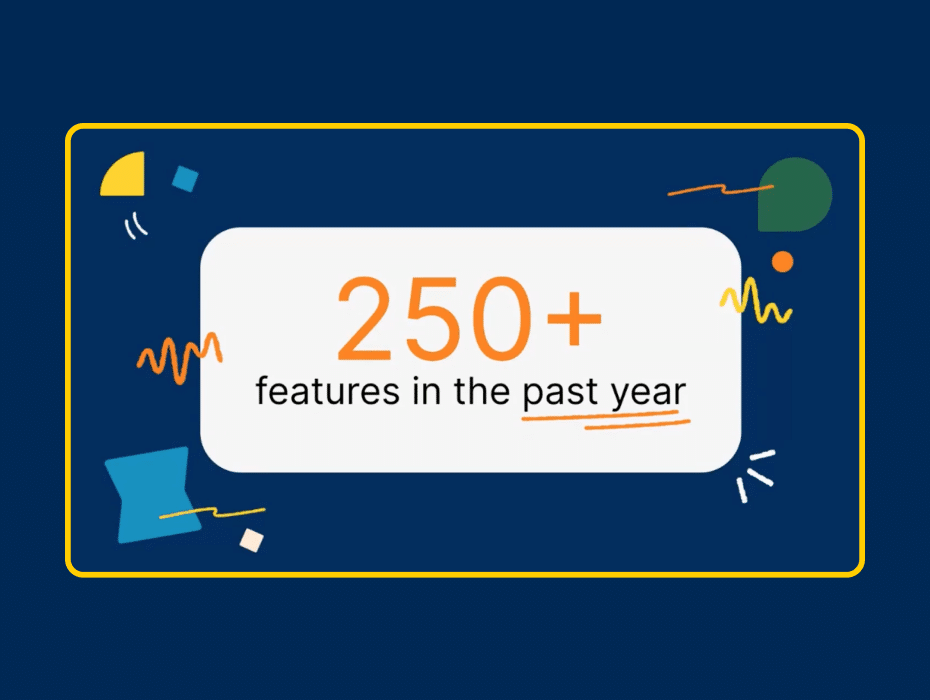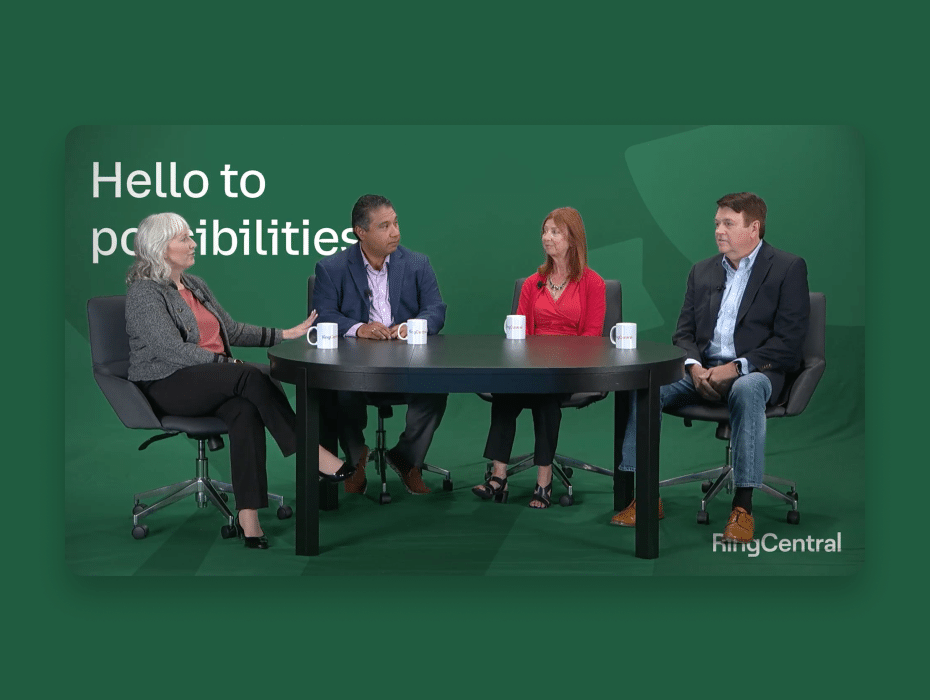When RingCentral was founded in 1999, we were just a few engineers with a vision for connecting people. Back then our tiny team was like a family, down to Founder Vlad Shmunis’s wife bringing in lunches for the crew.
Times—and communications—have changed in the two decades since. And like many companies, we’ve been through a few iterations.
⭐ What is UCaaS? ⭐
Everything you need to know about unified communications. For beginners.
We started as a phone company selling deskphones and carrier services to small businesses. In the last two decades, we shifted to the cloud, secured key hardware and telco partnerships, and received major investments that have helped us grow and the world’s best talent.
Now we’re a billion-dollar enterprise, and we hit record earnings in Q3. And through it all, Vlad Shmunis, our Founder and CEO, has been at the center of everything we do.

At RingCentral Connect, 2021, Vlad sat down with Zeus Kerravala, Founder and Principal Analyst at ZK Research, to answer questions about our biggest focuses for the future.
Speakers:
- Vlad Shmunis, Founder and CEO at RingCentral
- Zeus Kerravala, Founder and Principal Analyst at ZK Research
What was your inspiration to start RingCentral?
Vlad: It was really the confluence of a few major trends that were taking place. Mobile phones and early smartphones were coming about. Wide availability and proliferation of broadband, where you could actually have relatively reliable and relatively efficient data connections regardless of where you were.
And on the human aspect, the fact that the world was going distributed. It used to be that people and businesses would work out of a desk in a particular location. We saw cracks in that.
So what’s after MVP for RingCentral and how do you stay ahead of the curve?
Vlad: Here’s a tip about RingCentral: TIP stands for Trust, Innovation, and Partnerships. MVP is just one corner of this pyramid. But there is quite a bit more to that, including closer Contact Center integration, digital Contact Center, and digital lightweight Contact Center. This speaks to the innovation part.
But don’t forget trust and don’t forget partnerships—because without those, innovation falls flat. First and foremost, that’s uptime. Corporate enterprise communications is a mission critical capability. People simply do not react well to where there is no dial tone.

We have the absolute unique record in the industry of 12 quarters of Five 9s availability, which is a few minutes of downtime per year, including scheduled downtime.
Beyond that, there is data privacy protection, not dealing with questionable actors, not selling our customers’ data under any conditions, and being vigilant. We recently introduced end-to-end encryption. And three out of top five incumbent PBX manufacturers selected RingCentral as their go-forward exclusive cloud UCaaS partner.
Customers’ needs have changed quite a bit over the past 18 months. They’re becoming more mobile, more remote. How are you seeing your customers evolve?
Vlad: Enterprises are vocal. SMBs are vocal. We’re very close to the 5G revolution, and communications—and certainly business communications—is not going to be the same. Once 5G is here, we expect to be on the forefront.
We’ve had a big rise in this concept of composability. How do you see that driving the next wave of growth for RingCentral?
Vlad: Well, we’ve pioneered open platforms, open APIs. At this point we have 50-60,000 developers who have written to the platform. We have hundreds of apps in the App Gallery. We have a fairly rich API tool set, sandboxes, etc. We are about enabling custom workflows and custom plugins to and from our environment.
One that we just recently announced is the DocuSign integration. You now will be able to digitally sign your documents without ever leaving our environment. That joins our Google, Microsoft, Microsoft Teams, Salesforce integrations, and many others.
Looking in your crystal ball, what does the communications industry look like in 5-10 years?
Vlad: There is another major mega trend coming about, which is going to be as transformational as the internet itself: 5G. You are going to be always connected at extremely reliable, extremely high-bandwidth connectivity, more or less anywhere in the world.
So what does that mean? Immersive experiences, VR, lots and lots of AI. It’s drawing inferences from data at hand. It’s emotional analysis, it’s keyword spotting, things like that. I think it’s going to be fun.
Originally published Dec 15, 2021, updated Nov 03, 2023





